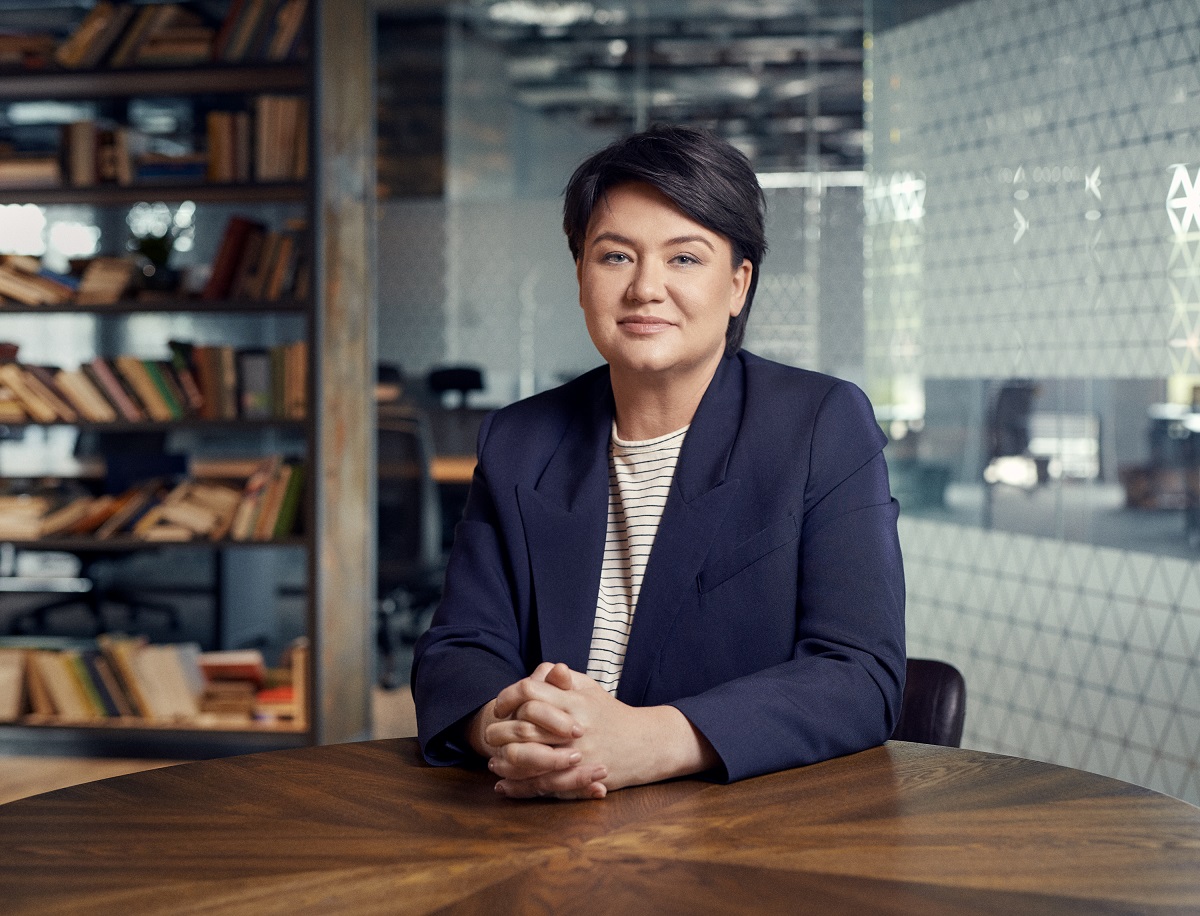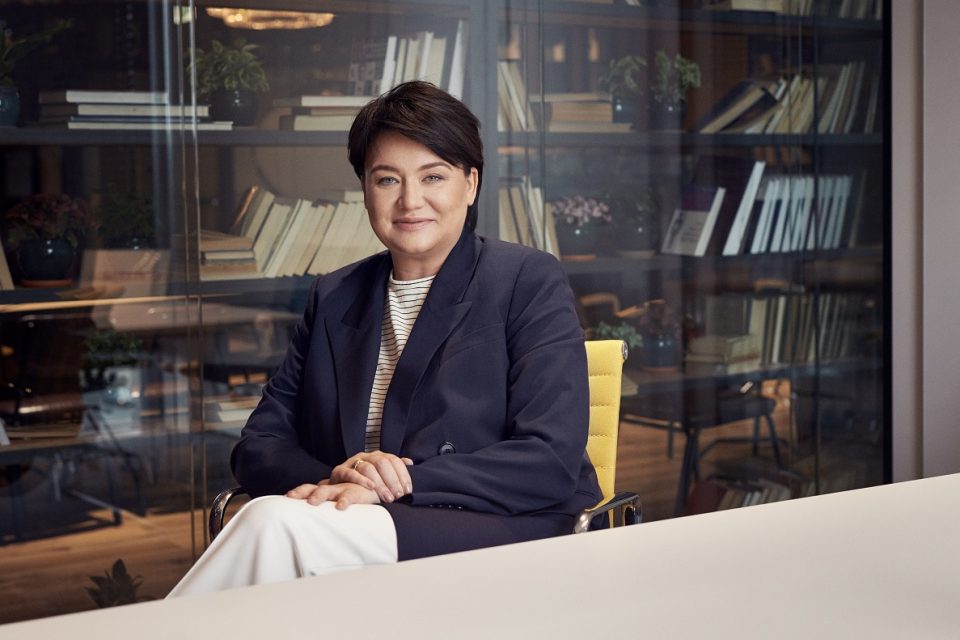Evgeniya Chernetskaya has been working in Microsoft for almost 10 years and currently holds the position of Marketing Manager at Microsoft CEE Multi-Country region. She develops and manages marketing strategies for Microsoft technologies in 25 countries in Europe and Central Asia. In this interview, she shared some of Microsoft’s insights on AI technologies, the future of work, and the digitization of education.
What marketing trends would you highlight? What has changed in the way marketing works within the last few years?
Uncertainty and digital change have brought about significant changes to our lifestyles, buyers’ behavior, and with that, marketing. Now, a B2B buyer is younger, more informed, empowered to make purchasing decisions, and expecting a personalized experience. Based on various research, a quarter of millennial buyers begin business buying decisions in search. In general, customers are more aware of the product than before and thus less interested to engage with sales reps, even in B2B; it’s harder than ever for companies to earn customers’ trust, and trustworthiness matters more than before; thus, you need to be ready to invest and maintain long-term relations; consumers today expect more. Influenced by the customized experiences available on different platforms, the bar to satisfy potential customers is set higher than ever before. The main changes could be summarized in four trends: the dominance of customers and their needs; usage of marketing technology, as marketing became even more scientific and data-driven; the importance of high-quality content for self-study on the web, and the rising need for further expansion of test marketing with tests and pilots to execute efficient campaigns.
You are responsible for the marketing strategies for the promotion of Microsoft products. Have you noticed a change in the services businesses have been looking for before and during the COVID-19 pandemic?
The way we work has changed; we’ve embraced different habits, combining private and working hours and being more flexible than ever before. Our Work Trend Index 2022 research shows that employees tend to prioritize their well-being – 53% of employees are more likely to prioritize it over work than before the pandemic. Gen Z and Millennials are comfortable with remote or hybrid work; for them, there’s no going back as they highly value their flexibility and freedom. 77% of Gen Z and 30% of Millennials are more likely to engage with a company posting job opening on LinkedIn if it mentions “flexibility”. Based on that, we should change our approach and stop thinking about work as a place. Instead, we should focus on maintaining the culture and connecting and empowering employees. 43% of remote workers say that they don’t feel included in meetings; therefore, new working rules should be defined – but for now, only 27% of the companies created them. Microsoft has developed the first employee experience platform built for the digital era – Microsoft Viva. It brings together communication, communities, knowledge, learning, goals, and insights within the Teams platform. Unilever, for example, adopted Microsoft Viva to provide individuals, managers, and leaders with data-driven, privacy-protected visibility into how work patterns affect employee well-being and productivity. These insights have helped the company improve the employee experience and promote greater work-life balance amongst their global employee bases.
Microsoft is focused on developing AI technologies. A few years ago, people were afraid of them. Do you still see fear, or are people already ready to be a part of the future?
Almost all of us use some AI features daily, we’re just unaware of it – for example, when using web shop to buy clothes, while reading emails, or searching the web. Microsoft products do have embedded AI to provide valuable insights to users. At Microsoft, we believe that when you create technologies that can change the world, you must also ensure that the technology is used responsibly. Our work is guided by a core set of principles: fairness, reliability and safety, privacy and security, inclusiveness, transparency, and accountability. Through our responsible AI standard, we are putting those principles into practice across the organization to develop and deploy AI that will positively impact society. Following those principles, Microsoft, for example, stopped selling AI-based facial-analysis software tools that infer a subject’s emotional state, gender, age, mood, and other personal attributes. Usage of AI increased during the global health crisis. By providing thorough and transparent information and responsible implementation, we believe that this fear of the new will gradually fade. It is already happening as people embrace technologies like AI and recognize their benefits.

One of the concerns with the development of AI technologies is that many people will lose their jobs. Some time ago, you said that new job positions would appear. Could you share more about that subject?
AI technologies minimize the human involvement needed as they can automate processes, so some jobs do disappear. At the same time, automatization makes space for new jobs where human creativity and approach are irreplaceable. The World Economic Forum predicts that 95 million new roles will be created by 2025 as humans, machines, and algorithms increasingly work together. New jobs will open in engineering, software design, and programming – positions like data detectives, robotics engineers, and machine managers are already on the rise. To grow, we should be focused on new skills that we might need for the jobs of the future. We should embrace that learning is a lifelong process. To bridge the global digital skills gap, Microsoft launched Global Skilling Initiative, addressing job seekers, underserved people, and people who want to upgrade their skills – they all have the opportunity to learn and acquire new digital skills. Since the start of the Skilling Initiative 2 years ago, more than 28,000 people from Bulgaria have benefited from free skilling courses.
The COVID-19 pandemic has changed a large part of the work processes in the IT sector. How has this affected your efforts (Microsoft’s) to help businesses in their digitalization process?
Many business processes going remote or hybrid with companies not ready to adapt their processes in a short timeframe have led to the rise of cyberattacks. Security has become crucial to keep businesses resilient. While helping our customers – companies, governments, and NGOs – to digitally transform, security stays on top of our minds. We are doing this by building security by design into every product we offer, delivering end-to-end solutions spanning security, compliance, identity, device management, and privacy across clouds and platforms. Microsoft is recognized by the industry as a leader in multiple security categories – a testament to the trusted security solutions we offer. To help businesses to recover and increase productivity, the European Union developed the Recovery and Resilience (RRF) Program. It is the largest investment in Europe in 70 years. Bulgarian public sector and companies can strongly benefit from using resources from the RRF to accelerate digitalization and increase competitiveness.
Microsoft develops technologies to help not only businesses but also educational institutions. During the pandemic, many students had to switch to e-learning, which was challenging for both them and the teachers. How do Microsoft products facilitate this process? Do you think an entire e-learning future is possible?
Digitization in education is not only video conferencing. The digitalization of education, in the end, benefits children by providing a fun and engaging learning experience, preparing them for the future job market by developing their digital skills and skills like cooperation, curiosity, and creativity. For the past two years, we have worked closely with the Bulgarian government to ensure Bulgarian schools have access to digital tools enabling e-learning. For example, the Medical University of Plovdiv, through its Moodle learning management system, developed by Telelink Business Services and leveraging the capabilities of Microsoft Azure and Microsoft 365, especially Teams, now provides a first-class medical education and powers a thriving international community of digitally connected students.
For the past few years, it seems as if Microsoft has mainly focused on developing Windows 11 and AI technologies. What else is the company working on, and how do you expect your new technologies to change the digitalization of businesses?
We help customers by constantly developing our products and services, upgrading our expertise, and predicting how a modern business will look like tomorrow to offer just the right tools. Windows 11 and AI get much media attention, but we’re working in many areas. For example, we’re constantly upgrading our Azure services. We are upgrading our Microsoft Intelligent Data Platform, innovating the Power Platform, and our new Microsoft Digital Contact Center Platform. Of course, we are constantly working on Microsoft 365 and Teams to provide millions of users the support they need in a hybrid work environment. Cybersecurity is one of the priorities, so we continuously analyze threats to respond with new solutions. Our new Entra product family includes tools for permissions management, identity governance, and identity verification. Also, we now offer managed threat detection and response with the help of Microsoft Security Experts. We feel that it is our responsibility to share our knowledge, so we provide a thorough analysis of trends and threats in our annual Microsoft Digital Defense Report. Sustainability is a fundamental direction for us, as well. We designed Microsoft Cloud for Sustainability to work across multiple industries to gain transparency and insights to manage the company’s environmental footprint through the whole value chain. We are creating the future together with our customers and partners by using technology wisely and responsibly. Together with our partners, we’ll continue to empower every person on the planet to achieve more.
Source: Microsoft: We create the future by using technology wisely and responsibly | TechNews.bg





